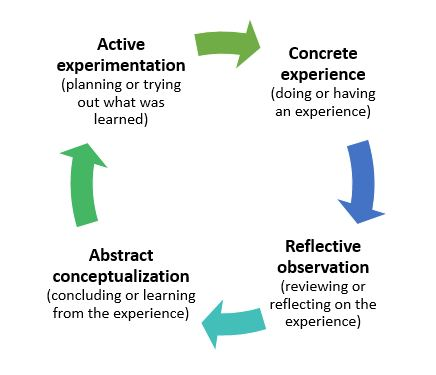Learn all about supervision as a social worker, how it contributes to professional development, and why it’s important to your career. Get the examples you need here.

Working as a social worker can be a challenging and rewarding career choice. It involves supporting vulnerable individuals, families, and communities in times of need, providing guidance, and working towards positive change. However, the nature of the work also means that social workers can face a range of difficult situations, often dealing with complex and emotionally-charged issues. To ensure that social workers can provide effective help and support, supervision is essential.
Supervision and Effective Social Work Practice:
Supervision is a vital aspect of effective social work practice. It is a regular, structured process of reflection and support that enables frontline social worker to discuss their work and any challenges they face in a safe and supportive environment. Good supervision enables social workers to explore their own feelings, reactions, and motivations. It also helps them to develop new skills, knowledge, and ways of working. Furthermore, it is an opportunity to reflect on their own practice and consider areas for improvement. This also helps to ensure that the social worker’s work is in line with best practice, relevant legislation and effective group supervision.
Supervision can take different forms, including group supervision or an individual supervision session as well as occasional telephone calls or emails. In some cases, effective supervision may also include peer support, which can be helpful in providing another perspective or helping to problem solve. Professional supervision should take place at regular intervals, such as monthly or quarterly, and both the supervisor and social worker should record any discussions that take place.
Supervisors should provide a supportive environment where ideas and different perspectives can be shared without fear of judgement. It is important for supervisors to ask open-ended questions that will help spark conversations and allow social workers to explore their thoughts further. Supervisory sessions should also include goal setting, reflection on best practice as well as the sharing of resources or literature where appropriate.
Positive Social Worker Views on Supervision:
Supervision is highly valued by social workers who see it as an essential part of continuing professional development. A recent survey found that 89% of social workers viewed supervision as essential or very important. Moreover, 91% of social workers felt that supervision helped them to reflect on their practice and improve their work. Social workers also expressed a preference for supervision that is supportive, non-judgemental and focused on reflection. Such approaches to effective supervision have been shown to lead to greater job satisfaction and improved motivation.

The Development of Supervision in Social Work:
Supervision has been an integral part of social work practice from its early days. However, the nature of supervision has evolved over time, reflecting changes in the social work profession and the wider social and political context.
Over the years, social work supervision has evolved and expanded to better support social workers in providing effective and culturally competent services to clients. Early on, supervision focused on case consultation and aligning with the organisation policies. But as the profession grew, there was a recognition of the need for ongoing training and skill development. Additionally, reflective practice and self-awareness became incorporated to help social workers better understand their impact on clients and develop cultural competence.
More recently, there has been a greater emphasis on competency-based supervision, as well as appropriate supervision to explore the emotional and psychological aspects of social work practice. Additionally, the importance of evidence-based practice and staying current with research has gained recognition. And with the advent of technology, distance supervision has made it easier for supervisors and social workers to connect, especially in rural or geographically dispersed areas.
Through these various approaches, social work supervision continues to evolve and improve, helping social workers provide the best possible services to those in need.
Reflective Supervision:
This is a process that helps social workers to understand and learn from their experiences. It involves examining their own thinking and emotions and reflecting on how these affect their work with clients. It is particularly useful for social workers dealing with complex or emotionally-charged situations.
Consider incorporating reflective supervision into your practice. This approach provides a safe and structured space for self-reflection, critical thinking, and emotional exploration related to your work with clients, colleagues, and the broader social work practice. Key aspects include support to develop personally, non-judgmental exploration of thoughts and emotions, emphasis on examining feelings and countertransference with clients, critical analysis of interventions, integration of theoretical knowledge, enhanced self-awareness, acknowledgement of the emotional demands of social work, and a collaborative process with your supervisor. You can deepen your understanding of yourself and your impact on clients while building resilience to prevent burnout and promote well-being.
Kolb’s Experiential Learning Cycle:
Learning through experience is a dynamic process that Kolb’s Experiential Learning Cycle perfectly describes. Developed by David A. Kolb, this model outlines a 4-stage cycle that individuals go through when acquiring knowledge and skills.
The cycle enables learners to engage in hands-on experience, reflect on it, create meaning, and apply that meaning in real-world contexts. Each stage plays an essential role in developing the learner’s understanding, skills, and overall growth.
In the initial stage, Concrete Experience, individuals engage in specific experiences, either real or simulated, to provide the foundation for learning. The Reflective Observation stage follows, where learners step back and carefully reflect on their experiences, gaining insights, identifying patterns, and understanding the significance of their experiences.
The next stage, Abstract Conceptualisation, involves analysing the further information gathered during reflection, making connections, and building frameworks or mental models to understand the experience. The final stage, Active Experimentation, is where learners apply their new knowledge and theories to the real world and adjust their understanding based on the outcomes and feedback received.
The cycle is iterative, as individuals can continue the cycle by using the knowledge gained from active experimentation as a foundation for new concrete experiences, leading to further learning and growth.
Kolb’s model emphasises the importance of integrating concrete experiences with reflective observation, abstract conceptualisation, and active experimentation. It suggests that learning is most effective when individuals actively engage with their experiences, critically reflect upon them, derive meaning, and apply their knowledge in practical contexts.

Supervision Processes – A Model and Processes:
Supervision processes involve a range of steps that enable social workers and newly qualified social workers to learn and grow in their practice. One model is the six-step supervision cycle process model which includes preparation, contracting, exploration, understanding, action, and evaluation. This model provides a structured approach to supervision that encourages social workers to engage with their own learning and development.
To make the most out of supervision sessions, both the supervisor and social worker should come prepared with case notes, reports, and other necessary documentation. The social worker then engages in self-reflection and self-assessment, considering their strengths and areas for development. During the discussion and feedback step, the supervisor provides constructive feedback and guidance, while the social worker shares their reflections and challenges. Based on this exchange, both parties collaboratively set measurable and achievable goals with a clear action plan. The supervisor supports the social worker in developing needed skills and competencies through providing resources, guidance, and recommending training opportunities. Finally, evaluating progress towards goals helps the social worker to adjust goals, strategies, or plans based on evolving needs and circumstances.
Outcomes-Focused Supervision:
Setting specific, measurable, achievable, relevant, and time-bound (SMART) outcomes is the foundation of Outcome-Focused Supervision (OFS) in social work practice. This approach involves the team manager and social workers working together to establish goals that align with desired outcomes. By doing this, social workers can make informed decisions and interventions that lead to success.
An essential part of OFS is monitoring and evaluating progress towards outcomes. Progress is assessed by regularly reviewing case notes, observing practice, collecting feedback from clients, or using outcome measurement tools. Based on the evaluation, feedback is provided between supervisor and supervisee, emphasising their strengths, areas for improvement, and strategies to enhance practice.
To ensure effective and evidence-informed practice, supervisors support social workers in accessing relevant research and resources. OFS also prioritises professional development, identifying areas for training and skill development. Continuous professional development enhances social workers’ ability to achieve the outcome and provide quality services to clients.
Accountability and quality assurance are crucial components of OFS. Social workers’ adherence to professional standards, ethical guidelines, and the organisation policies is continuously monitored, assessed, and evaluated.
Finally, the supervisor and supervisee collaboratively develop specific, achievable, and measurable goals related to the social worker’s professional development. They then develop an action plan to achieve these goals and evaluate progress as they work through the plan. Such an approach fosters reflective practice, critical thinking, and ongoing learning and development.
Conclusion:
In conclusion, supervision is a critical aspect of effective social work practice. Supervision helps social workers to reflect on their work, develop new skills and knowledge, and ensure that they provide the best possible support to vulnerable individuals, families, and communities. Reflective supervision, Kolb’s experiential learning cycle, supervision processes model, and outcomes-focused supervision are all effective approaches to supervision. Social workers who receive good quality supervision are better equipped to support those in need and deliver meaningful change in the lives of the people they serve.
Looking for a fulfilling role in social work in the UK? Look no further than CVlocum! Our extensive range of job opportunities is perfect for all levels of social workers seeking new challenges and opportunities. Don’t wait – explore our listings today and discover your next opportunity to make a real difference in people’s lives. Let us help you achieve your career goals today!


[…] What is Supervision for Social Workers and Why It’s Important […]